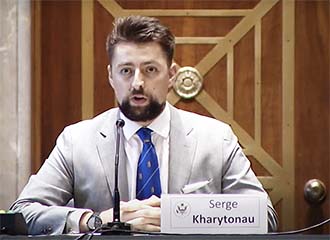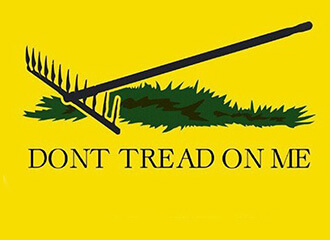На русском языке:
Мнение. Артем Шрайбман: Те, кто десятилетиями полагался на позицию «не бесить Россию», оказался фундаментально неправ
На беларускай мове:
Меркаванне. Арцём Шрайбман: «Тыя, хто дзесяцігоддзямі прытрымліваўся пазіцыі «не раздражняць Расію», фундаментальна не меў рацыі»
Political analyst Artsyom Shraibman published a post (1 and 2) in his Telegram channel, in which he discusses why the «NATO threat» can’t be considered a reason for Russian aggression, and why the position «not to piss Russia off» turned out to be unwinnable. We quote the author’s opinion unchanged.
There are many problems with the argument that the West or Ukraine themselves are to blame for this war, because they shouldn’t have expanded to Russia’s borders, and these problems keep coming up without me anyway.
First, NATO was already at Russia’s borders (Poland, Lithuania, Latvia, and Estonia), and now there will be even more of it, both geographically and in terms of saturation. The orientation of Ukraine wouldn’t change anything there, but the war with it has worsened the situation from this point of view. That is, both the reasoning and the actions based on it are absurd.
Second, the idea that Russia can be attacked or somehow threatened by having a little more ground contact with it is simply demeaning in relation to Moscow’s nuclear arsenal.
Third, this reasoning is often a refuge of rather immoral people, who in another situation would accuse a rape victim of dressing too provocatively. «Big powers have more rights by spheres of influence, otherwise it’s your fault» = «Strong men have the right not to be provoked by naked women’s knees, otherwise it’s your fault.»
But to me, another gap, if not a failure, is much more striking in the logic of the adherents of the theory of the West as the key cause of the war. These people, who often call themselves «realists,» refuse to see multiple causes in politicians’ decision-making, and reduce everything to their convenient one-dimensional explanation.
That is, in their picture of the world, if one country attacks another, it is because of a clash of geopolitical interests, and only because of it. And thus, taking into account the geopolitical interests of all, the war could have been avoided.
And where does this conclusion about the reason for Moscow’s actions come from? From Putin’s speeches about the NATO threat? Why do serious (as it seems) analysts suddenly believe the rhetoric used by experienced politicians to justify their actions? Maybe we should also look at the military doctrine, as it says that Russia is a peaceful country?
The analysis simply excludes the quite trivial possibility that the Russian president is lying to us when he talks about his motives. It is possible to want to invade Ukraine simply because it is «historically ours,» «we are one people,» and «we gave it land.» And in such a situation – there is NATO, there is no NATO – the goal, the historical mission that Putin undertook would remain unchanged.
But it is enough to say something about the NATO threat through a comma, and a swarm of «realists» will cling to this argument. Why would a speaker, who has not been shy about using disinformation throughout his career, suddenly need to be believed on this particular issue?
I’ll tell you why. Because then the long-standing lament about «don’t provoke Russia» can be converted into «we told you so, but you didn’t listen to us.» And this is another clever manipulation.
In fact, Russia attacked not because it was objectively cornered by NATO’s hawkish policy, surrounded by its expansion, but in the opposite – because its ruler believed that the other side was a crowd of no-balls slugs who could be crushed simply by showing them a baton.
And here is where the most important question arises – about the lessons of this whole catastrophe. Those who for decades have relied on the position «not to piss Russia off» turned out to be fundamentally wrong in their predictions of its behavior in February and in their assessment of Putin’s personality. And those countries and politicians who were considered hawkish and European russophobes, who talked about the deeply imperial consciousness of the Russian president, turned out to be much closer to the truth.
Does this mean that the hawks will always be right? Of course not. Any ideological view of reality will sooner or later be shattered by it [the reality].
But their track record in understanding who Putin is and who he has always been looks much more convincing than resume of those who hoped to draw this man into adequate cooperation while turning a blind eye to the threats coming from Russia.
But how can we understand whether Putin was always an imperialist, who thought Ukraine was Lenin’s artificial creation, and the collapse of the USSR was a consequence of a criminal stupidity of the early Bolsheviks, or whether it was the approach of NATO that made him so? Could it be that it was the West’s many years of disregard for Russia’s interests that turned the progressive young reformer Putin into what we see now?
There is a good opportunity to compare his words at the declaration of war this February with his own words 30 years ago. Enjoy


